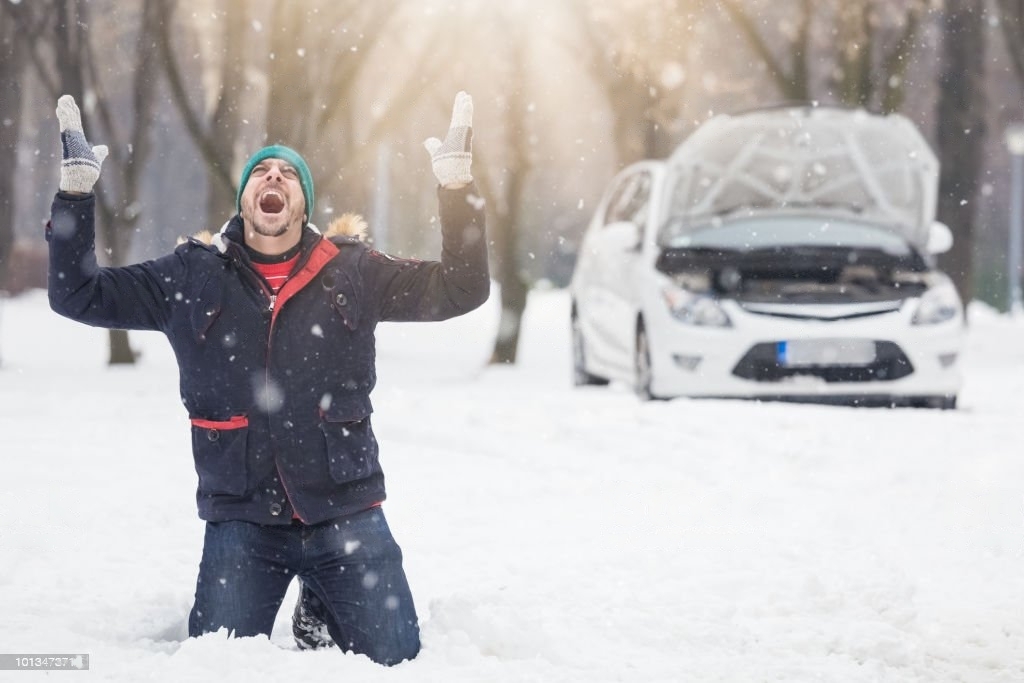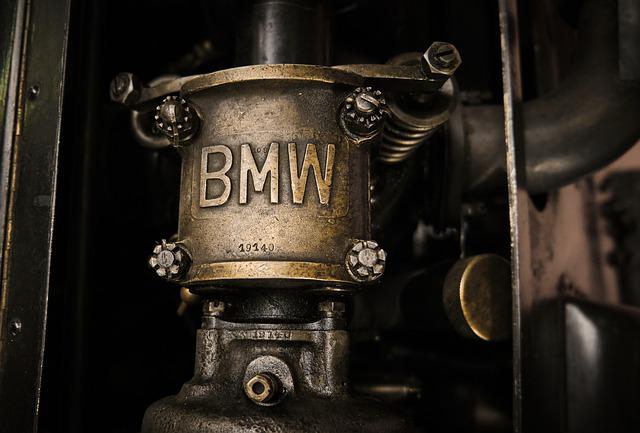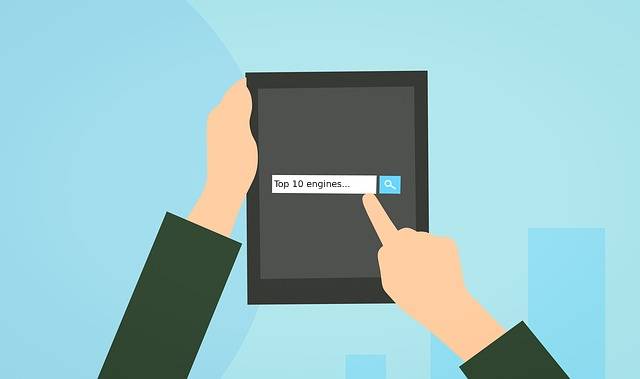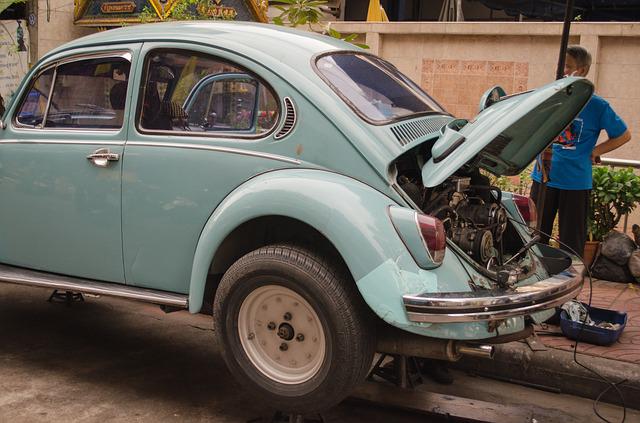15 Common Winter car problems and tips on how to avoid them
Find Used Engines and Transmissions for a Great Price! Live Assistant For Used Engines Call 1800-518-9776

We all love and embrace winters except for the troubles the season brings; it's all nice and joyous since the holiday season is when you finally get to take those long-due trips.
Like most of us, you probably have plans to go on a long vacation or hang around in the city with friends or family. But wait a second, have you prepped your car for this vacation?
Regular maintenance and service checks are necessary to ensure the car stays in good shape and operates smoothly on those ice-covered roads.
If you still need to do it, let us ease up the process for you.
We have created a list of 5 common winter car problems and tips to help you deal with them.
Winter care checklist to keep your cars in a good and safe condition
1. Worn-out tires
Engine oil, windshield, coolant- all of this is really important. But you know what is more important? Your car's tires. Ignoring your tire's condition in the winter season is absurd. We can't understand why anyone would ever do it.
First thing first, check your tire's tread depth. It is a rubber on your car tires that wears out due to friction. A worn-out tread depth means your car will have less traction, which becomes extremely dangerous, especially during winters when the roads are more slippery than usual.
Seriously, it's nothing to joke about, it really is like making your own deathbed. So could you not do it?
The next thing is to keep a check on your tire pressure.
Today, some cars have a tire pressure monitoring system that automatically signals the owner before it falls below a certain point.
The best thing here would be to get it at an optimum level, as tires with low air pressure and worn-out tread depth are your worst nightmare.
So make sure your tread depth is not below 1.6 millimetres, and your tire pressure is between 30-35 PSI.
If you live in areas where the temperature falls immensely, then investing in a pair of winter tires is also recommendable as they are more durable and workable.
Winter tires are a great option if you need better traction on the roads. This is a great place for you to invest if you are a newbie driver and just want to be on the safer side.
2. Flawed fog-lights
Fog is your greatest enemy in the winter season. Half of your driving problems will be because of fog. Even the best drivers lose confidence on a highway where you can barely see 5 or 7 feet ahead of you. And fog lights are one of the most important tools you need to beat it while on the road.
These days most cars come with in-built fog lights. They help the driver to have a clearer vision on the road by cutting through the fog that usually blurs it. This helps you and other drivers on the road- as it gets easier for them to see a car approaching.
So make sure you get your fog lights and headlights fixed, or you can also get them modified at any nearby service centre if you want.
3. Foggy windshields
Vision is the most important thing when it comes to driving. And whether it is a fog light or a broken windshield- it restricts proper visibility. Obviously, you need to fix that broken windshield, but what else can you do?
In winter, windshields go all foggy, and it is like you have gone blind or something, which isn't good, obviously. We know that you don't want to step out of the car every 15 minutes to wipe all the fog, only for it to come back as soon as you step in.
Here's how you can deal with it:
-
Purchasing a Owners of first-class labels are lucky because most of these expensive cars come with a climate control setting. So all you need to do is set your climate controller on heat mode and then use windshield wipers to clean the residue.
-
You can also invest in a few products that claim to help with fogging. There are anti-fogging sprays, wax and many similar affordable yet helpful products in the market that help you see clearer on the road.
-
Get your hands on useful car accessories like Lanmodo Vast Pro- other things might ditch you, but this one here is the best friend of car lovers. This device is the best invention to help drivers with improved road vision. Lanmodo Vast Pro is a night vision system that comes with a dashcam which provides clear vision even in the dark.
4. Low car battery
Check your car's battery before planning a vacation or even a casual drive. If your car has a low battery, consider fixing it before winter. This is because cold weather will reduce your battery further by a minimum of 30%.
Increasing the chances of your battery dying on a cold day in the middle of nowhere. Moreover, since the engine oil thickens in winter, your car needs an additional source of power which it draws from your car's battery. So remember to get it checked on time.
5. Low antifreeze
We have talked about car oil, how it works and why it is important. But only some know that your car's coolant, the antifreeze, is equally important in all weather.
The biggest myth associated with coolant is that it will only help you in the summer as it keeps your engine heat balanced. But the thing is, a coolant does not minimise the heat under the bonnet; instead, it maintains a nominal temperature inside it that benefits the internal components of your engine in all weathers and does not harm them by overheating or freezing.
So ensure there is optimum coolant in your car if you don't want the battery's distilled water to freeze.
This is how you can take the best care of vehicles in winter and avoid uncalled-for troubles. If you follow these tips, your car will stay in good shape and be prepped for anything that might not be pleasing.
Honestly, this is not a long list because most of it can be done in a day at a service station, and the rest requires you to make a few calls.
So stop procrastinating and get to work because that's how you will get the best out of your purchase.
6. Old Spark Plugs
Starting the car in winter can become an issue if you haven't done the regular servicing and maintenance checks. One of the primary reasons for this is an old broken, corroded spark plug that keeps you from taking your love for a ride.
There are a few things, though, that you can do in this scenario. But first thing first, be sure of the problem. During winters, many things including the thick fluids and worn-out engine hoses, can keep you from getting on the road, so be sure to test out those spark plugs before you do anything about it. All you have to do is get a multimeter and check the OHM readings.
Now, if you find your spark plugs at fault, don't be stressed because this is something you can fix yourself too. With just a few tools and a little hard work, you can get your car back in good shape in a maximum of one or two hours.
But if this is something that you are not very confident in, skip the DIY part and hire a technician. It isn't a costly job, so it should be relatively inexpensive.
7. Corrosion
During the winter, your car gets exposed to a lot of moisture and other complex elements. Usually, chances of oxidation multiply during winters which cause corrosion. One must keep an eye out for rust and ensure maintenance steps are taken beforehand because corrosion can significantly reduce your car's life span and dig a hole in your pocket, as you will need to replace essential parts in the future consistently.
To avoid the same, you can take multiple steps; the basic understanding tells car owners to wash their cars regularly, use car accessories that winterize and leverage the power of external waxes and coatings to prevent corrosion properly.
Another important tip here is that you don't leave your car's floor wet in any condition. Moreover, either park your vehicle in a garage to avoid winter snow and ice or use a cover to hide the same.
8. Low or Thick Fluid
Another very common winter car problem is the thickening of car fluids. These fluids are indeed created to stand strong during dropping temperatures, but they need to be checked when it's freezing out there. But what's the point of doing it when the damage is done? So ensure you check your car fluids as and when winter approaches.
People often prefer to get this done on their own as it is a simple and easy process. Yet if you are doubtful, you can ask a family member to help you or even hire a professional. Specifically, you need to check the viscosity of oil, wiper fluid, and antifreeze. Checking the consistency of oil helps ensure that your vehicle runs efficiently during the winter months. Moreover wiper fluid usually starts clogging after it falls below 0 degrees. So if you plan on going to any such location s during the season or live where the temperature falls miserably low, we recommend you change your fluid and get something that can withstand such a condition.
9. Worn Out Serpentine Belt
The serpentine belt is one of the most important components as it drives power to many important car parts, such as the alternator, compressor, power steering pump, and more. Once your serpentine belt starts wearing out, you can begin hearing weird squeaky noises near your car's engine area, which is the first warning sign for most people.
The bad news is that this noise can get even worse during winter. A bad tensioner is one of the primary reasons your serpentine belt could wear out and make such annoying noises. However, not every time when you hear some strange noises is it the fault of your serpentine belt. Sometimes it can be a very simple problem of the wrongly installed and misaligned belt. Once you align it correctly with the pulleys, you are good to go.
Nonetheless, if you have a worn-out belt, you must go to your trusted mechanic as soon as possible since it can also impact other internal car components.
10. Jammed Handles
What can be worst than waking up to jammed car handles? Like the ice-covered car roof and windshield were any less painful. Don't worry, though, as we can surely help you with this.
First thing first, understand that this could have been a result of many things. It could be because the ice is jamming the door, the handle could be frozen, or the rubber seal could also be frozen to the car's body.
Now there are several things that you can try to deal with this annoying situation.
You can start with an ice scraper if it is just the handle that is jammed. If it does not work, you can also pour lukewarm water over the ice to unfreeze it. Ensure it's not hot; otherwise, you will break your windshield due to the temperature change.
11. Cold Engine
Need help starting your car? Whether it’s a new one or a used engine, there are a number of things that could have been a reason for your cold engine.
It could be because of thick car fluid or gasoline, which is not burning easily - a dead battery could also be a potential reason for this.
But this is how you can improve this situation.
Try turning all electricals off. Since they draw additional energy from the car's battery, it might work if there's a battery issue. If it's not the car's battery, you need to check your engine oil and ensure it's optimum. All you have to do is open the bonnet of your vehicle and look for the dipstick.
If nothing is working, jump-starting your car is your last DIY hack. But it is only recommended if you've done it before, as you can end up hurting yourself or doing more damage to the car, which indeed isn't something you want.
When you've exhausted all your options, reach out to a professional.
12. Worn Alternator Belt
As soon as the temperature falls, your car's engine hoses and belts become vulnerable, further damaging and lowering your vehicle's battery, leading to complete failure of the operation. If nothing, checking your engine belts and hoses before the cold approaches is considered essential, given the risks it can pose to your vehicle.
One way to see if the belts need replacement is by looking at them once the engine cools down. Cracks and breaks in the belts are a direct sign that you need to invest in new components.
During the winter season, alternator belts usually start having more issues. For those who don't have a clue, an alternator is an electric component that charges the car's battery while the engine is running.
Some of the common signs of a faulty alternator are a low car battery, dim car lights, and constant whining noises.
Unfortunately, the only way to deal with a faulty alternator is to get it replaced by an expert. This is not a place where you can play DIY.
13. Diesel gelling
Another very common car problem people encounter during winter is gelling of car diesel. This occurs especially around areas where the temperature falls drastically in winter. As the fuel starts thickening, your car's mileage will start getting affected, although it will not cease your car from working altogether until in extreme circumstances.
White smoke from the exhaust is by far the most common sign of engine fueling. It could also be a problem if your car stops immediately after your start it. Spraying some ether is one way to deal with it; however, you must ensure you use the optimum amount, as it can further damage the car if overdone.
Some generic ways to deal with it include parking your car in a temperature-controlled environment. All you need to do is find a heated place or create it with heaters and boilers, whatever suits you the best in the scenario. However, the easiest way is to go for fuel additives that are made to deal with such issues specifically. This is the most pocket-friendly and easy solution, although it will ask you to take a trip to your nearest garage.
14. Flawed suspension
Flawed suspension can keep you from enjoying your vehicle with your family during the holiday season. To keep yourself from such misery, ensure you have a good look at it before the cold season approaches.
One of the primary causes of a faulty suspension is the poor alignment of wheels, which further makes it harder for one to control the vehicle while on the road. If your car's springs are not in good shape you will notice a weird inclination of it on one side while it's ideal. If it breaks or gets damaged with use, you will likely experience a misalignment issue while driving it.
Unfortunately, unlike other common winter car problems, a suspension issue is one which needs professional attention and can not be fixed by you.
15. Engine Hoses
Engine hoses can be impacted significantly by low temperatures. This is because they are made of rubber, which causes them to stiffen as the temperature drops. Before winter, ensure you have a nice look at your engine hoses and check for any cracks, bulges, bursts, or additional sponginess.
If you spot any of the following issues with your car hoses, you need to immediately get them replaced as they can give up on you as soon as the temperature falls.
At “Used Engines Inc.” you will get high-quality used engines for sale with a warranty. We strive to provide low mileage used engines and used transmissions for sale to our customers at the best price & excellent service. We have a large inventory of used engines & transmission covering the make & model of every dominant player in the market. You can approach us directly or visit our online store for your engine requirement and engine-related query.
We have a team of dedicated professionals who will resolve your issues exactly the way you want. You can also ask our experts for a free used engine quote, which is unique and competitive from other suppliers.
To buy a quality used transmission from us you need to submit your vehicle engine details including VIN & shipping details. We will analyse the details first and then get back to you with a comprehensive quotation. We provide free shipping to customers all over the USA. We promise to deliver a safe and damage-free engine at your doorsteps.
related
You May Also Like

Which BMW Has the Most Horsepower?
A car is useless if it doesn’t have good horsepower. Just imagine driving your car with sluggish acceleration and it drags on the road whenever you take it for a spin.
Read Article
10 Best Engines Made So Far By Top Engine Manufacturers
Over the years, the car industry has seen major changes. Car engines have become smarter and it looks like every new engine that rolls out is better than the other.
Read Article
How to Make Your Car Last Forever?
Isn’t it lovely when a new car works the way you want? The gears shift smoothly and the wheels roll without dragging against the road. But as your car gets older, you’ll notice that it doesn’t drive smoothly, has lower fuel mileage, and overheats easily.
Read Article